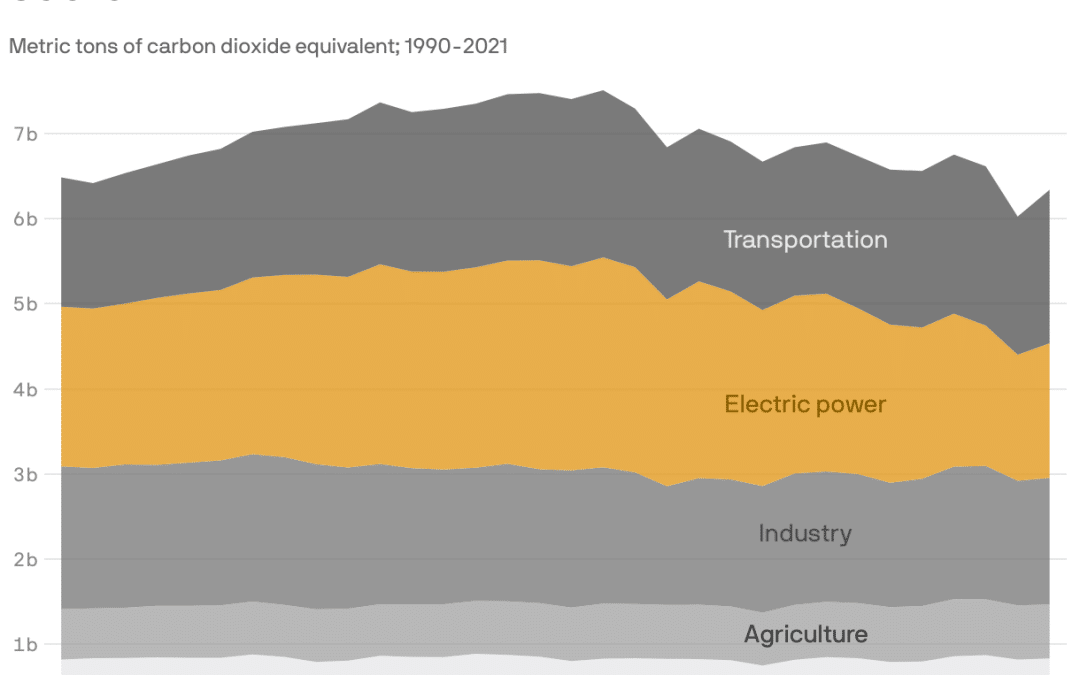The Environmental Protection Agency is said to be nearing the release of draft rules to force carbon emissions cuts at the nation’s power plants, Ben writes.
Why it matters: Electricity production is the second-largest source of U.S. greenhouse gas emissions, mostly from coal- and gas-fired plants.
Driving the news: The New York Times reports that under the plan, these plants could need to end nearly all their emissions by 2040.
- Bloomberg has the same rough info, though both outlets caution the rules are still under construction.
- Green and industry groups have held meetings with White House and EPA aides in recent days — a frequent sign of an impending release.
What we’re watching: A few things to keep in mind when the draft rules arrive in coming days or weeks …

- But the rules are a recognition that climate law carrots — via major clean power tax subsidies — need complimentary sticks to meet national climate goals.
- The White House has pledged a 50% cut to economy-wide emissions by 2030 when compared with 2005 levels, under the Paris Agreement.
- Separately, the White House has an aspirational target of 100% carbon-free power by 2035.

- So a big thing to watch is how much EPA sees the climate law — and the 2021 infrastructure law — making that tech competitive enough to meet the standards.

- The new requirements are expected to instead focus “inside the fenceline” on emissions rates at power plants.
- But litigation is certain once they’re finalized, so it’s possible the high court could decide again whether they believe EPA stayed in its lane.


